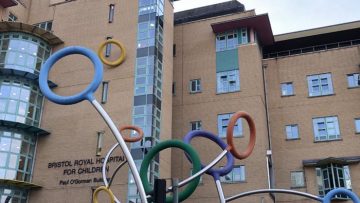Peter Neumann
Peter Neumann has been an animator of British mathematics for fifty years, and has plunged energetically into every aspect of the mathematical world.
First, into research, becoming – like both of his parents – an algebraist. He has worked on permutation groups, combinatorics, and computational group theory. Each of his research articles is beautifully crafted, with its place in mathematics carefully thought out and explained, together with thoughtful comments on where further work might lead. Several of these papers have been highly inuential. For example, his creation, jointly with Cheryl Praeger, of a recognition algorithm for special linear groups opened a new area in computational group theory; his memoir with Adeleke giving a general theory of tree-like relational structures inspired new directions in in nite permutation groups, model theory and graph theory; and his recent paper on synchronising groups is the rst of a new attack on the Cerny conjecture for synchronising automatons.
Then, as a teacher, Peter’s enthusiasm and the originality of his teaching methods have made him legendary. Very many who encountered him as undergraduates, some of them now prominent mathematicians and some no longer in the mathematical world, speak of how he was the first to awaken them to the joy and fascination of mathematics. At the junior research level his Kinderseminar is famous far outside Oxford. He has successfully supervised nearly forty doctoral students.
On the national mathematics stage he was chairman, in 1991/2 of the committee that presented to the LMS, IMA, and RSS the report that led to four-year MMaths degrees.
Yet another area of his work has been for the U.K. Mathematics Trust, whose founding chairman he became in 1996. This is a body which organizes mathematical activities and competitions among schoolchildren. It took over the responsibilities of the British Mathematical Olympiad Committee, and hosted the worldwide Congress of the International Mathematical Olympiad in Glasgow in 2002. During the seven years of his chairmanship he brought the Trust from small beginnings to a large educational charity in whose competitions about three-quarters of a million pupils are now involved each year, and he has continued to work as an enthusiastic volunteer in the Trust’s training programmes since stepping down from the chairmanship. The Trust has had an immeasurable effect in raising awareness of mathematics in British schools, and has created a real new enthusiasm for the subject throughout the country, bringing together academics, mathematicians active in other professions, school teachers, and the wider public.
Finally, Peter has been for many years a stalwart of the British Society for the History of Mathematics, and has done as much as anyone to promote the study of the history of mathematics as an important discipline in British universities. He has himself become a serious mathematical historian, producing a definitive and much acclaimed critical edition of the papers of Galois in 2011.



